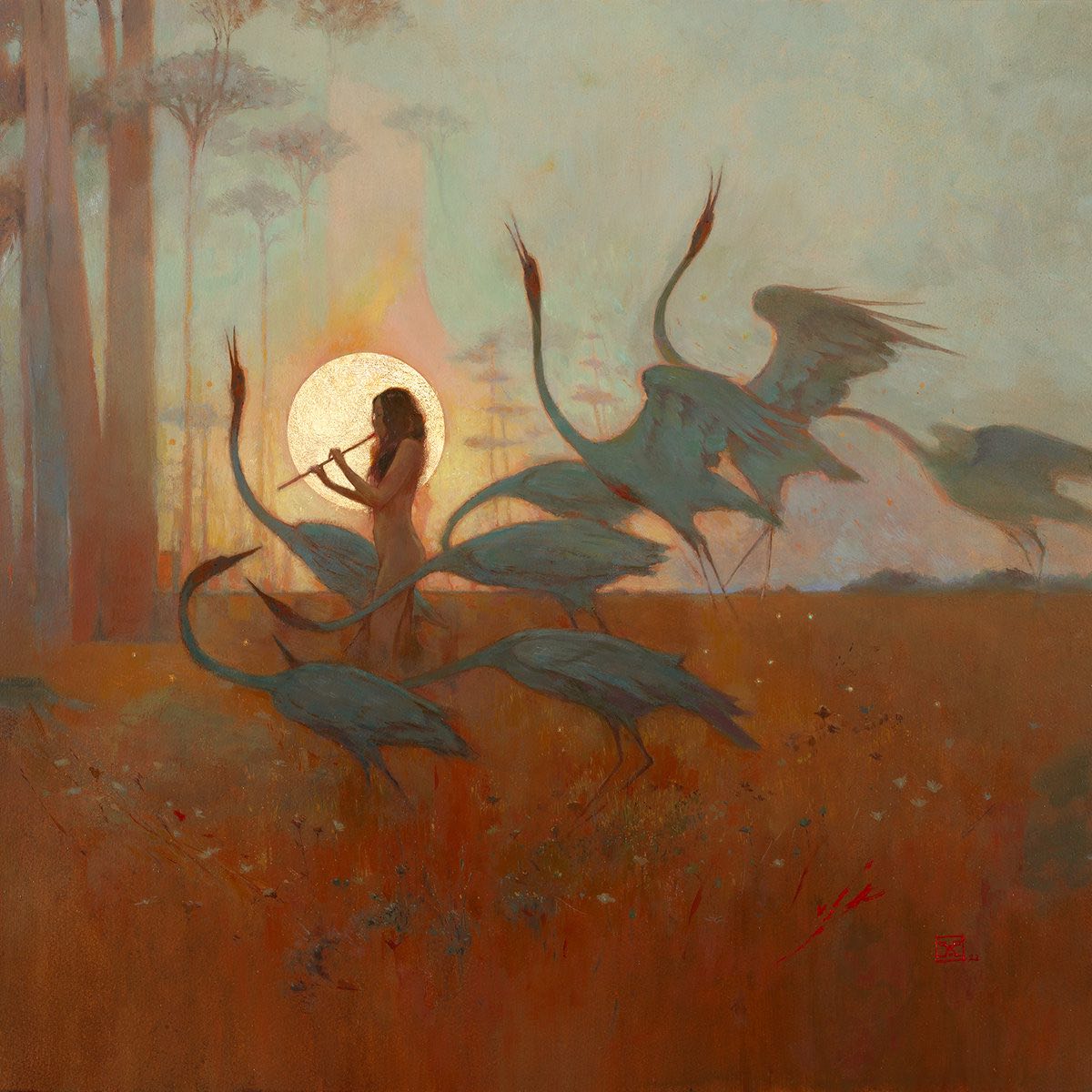Alcest
Les chants de l’aurore
NUCLEAR BLAST
ABOVE THE CURRENT
Alcest’s Les chants de l’aurore is not at all like a box of chocolates. The reason being that with most releases from the French blackgaze band, the listener always knows what they’re going to get: sheer post-metal brilliance from start to finish. The French duo of Stéphane “Neige” Paut and Jean “Winterhalter” Deflandre’s quality of material has rarely faltered over the 24 years since they formed. Alcest proudly exhibited consistency on their previous six albums, but even more impressive is this new one. On Les chants, the band takes leaps and bounds in clearing the already-high bar they’d set for themselves dating back to their 2007 debut.
Following the release of 2019’s Spiritual Instinct, the span between that record and its successor grew to five years. It was the longest drought between studio records by the group. When a band returns after a break that long with a lousy record, it can put the nail in the coffin for their career—though in the case of Carcass’ Surgical Steel in 2013 and At the Gates’ At War with Reality in 2014, it turned out their extended breaks actually did the bands good. So much so that their long-in-the-waiting comeback albums rank among the bands’ best.
Alcest firmly belongs in this camp, with their self-produced Les chants teeming with a succulent sound and rich songwriting. Alcest also rise above the rest of their black-metal and post-rock peers by unashamedly expressing an upbeat attitude, with the album title translating to “the songs of dawn.” Led by piano and also featuring strings, “Réminiscence” is a sub-three-minute interlude in which Neige’s singing chops take center stage. The ensuing “L’enfant de la lune” opens with a female voice cooing atop some light instrumentation, though 30 seconds later Alcest explode with a wall of noise—and a few minutes after that, the song turns into a catchy rock number. Closing out the album, “L’adieu” is at first laced with a bittersweet tone before Neige and Winterhalter squeeze a little more emotion out of themselves as one does with a nearly empty tube of toothpaste.
One final mesmerizing quality of Les chants de l’aurore is how Niege wears his heart on his sleeve but never resorts to sappy sentiments or feelings of apathy or victimization in his lyrics. To the contrary, the vocalist explores the gamut of human emotions over the course of the record. He declines wallowing in self-pity and instead explores the whys and hows of the ups and downs of each of our lives and the ways in which they come to define us. As Neige sings on “Améthyst”: “I felt intensely / Each of your pains,” before concluding the stanza: “I always knew deep down / That I came from very far away / And that in essence we are all / Immortal beings.” Now that’s how you write lyrics with depth for heavy music.
Alcest’s new record is a critical, confounding, and classic achievement in post-rock. Five years was worth the wait.







